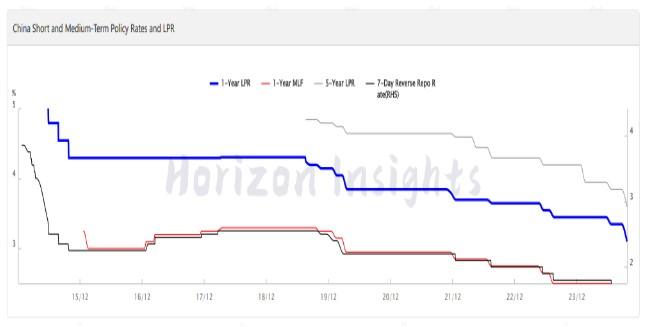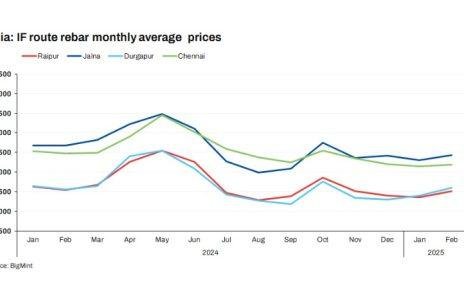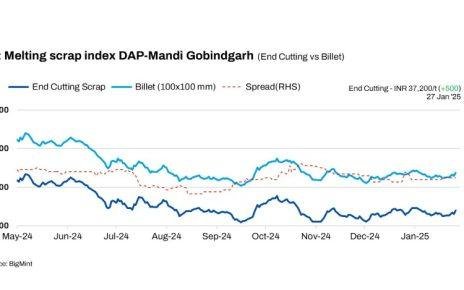- 5-year LPR slashed, touches historic low
- New housing sales surge in tier 1 cities
Horizon Insights: Chinese officials, at a meeting on October 17th, announced measures for optimising inventory and controlling supply in China’s struggling real estate market. Key points included granting local governments more autonomy to adjust or lift restrictions, such as removing purchase, sales, and price limits. Additionally, the meeting proposed reducing housing provident fund loan rates by 0.25%, lowering down payment requirements to a minimum of 15% for both first and second homes, and reducing transaction taxes for sellers of old homes buying new ones.
On the supply side, the plan includes increasing urban village redevelopment units by 1 million and expanding credit lines for “whitelisted” projects to RMB 4 trillion by year-end. Special-purpose bonds will be issued to purchase existing commercial housing and land. Although demand-side policies have been more actively implemented, with 29 cities lifting purchase restrictions by October, the impact of urban village redevelopment is projected to be less significant than previous shantytown redevelopment efforts, which saw sales increases of 46%, 38%, and 35% from 2015-2017.
Developers’ participation in urban village projects is expected to be limited due to low returns and high costs. A recent survey indicated that many private developers are struggling to secure financial support, even with projects on the whitelist. In contrast, state-owned developers face fewer issues obtaining loans. Local governments have been encouraged to use special-purpose bonds to buy back existing commercial housing inventory, but low buyback prices pose challenges. Current pricing models for buyback set prices below market levels, and many developers remain reluctant to accept these terms.
Key updates
5-year LPR cut for third time this year, reaches historic low: Additionally, the meeting emphasised issuing special-purpose bonds to acquire idle land, aligning with a focus on revitalising existing inventory while controlling new supply. The recent reduction of the five-year Loan Prime Rate (LPR) by 25 basis points marks the third cut this year, bringing it to a historic low. This reduction is expected to lower mortgage rates in most cities, making home purchasing more affordable and potentially boosting demand.
Significant surge in new housing sales, especially in tier 1 cities: New housing sales have increased significantly, especially in tier 1 cities, following the Politburo meeting on September 26, which aimed to stabilise housing prices and improve market sentiment. After the announcement of new policies, daily new home transactions in tier 1 cities surged by 227% m-o-m. In contrast, tier 2 cities showed slower growth, with some cities such as Hangzhou and Ningbo experiencing significant increases.
New home price declines slow, second-hand market sees sales surge: New home price declines have moderated, with some cities reporting price increases. In September, average new home prices across 70 cities fell by 0.71% m-o-m, although expectations for price rises have increased among respondents. Meanwhile, the second-hand housing market has benefited even more from favourable policies, with a 32% m-o-m increase in sales across key cities. However, second-hand prices continue to decline, suggesting a persistent low expectation among residents.
Note: This article has been written in accordance with a content exchange agreement between Horizon Insights and BigMint




